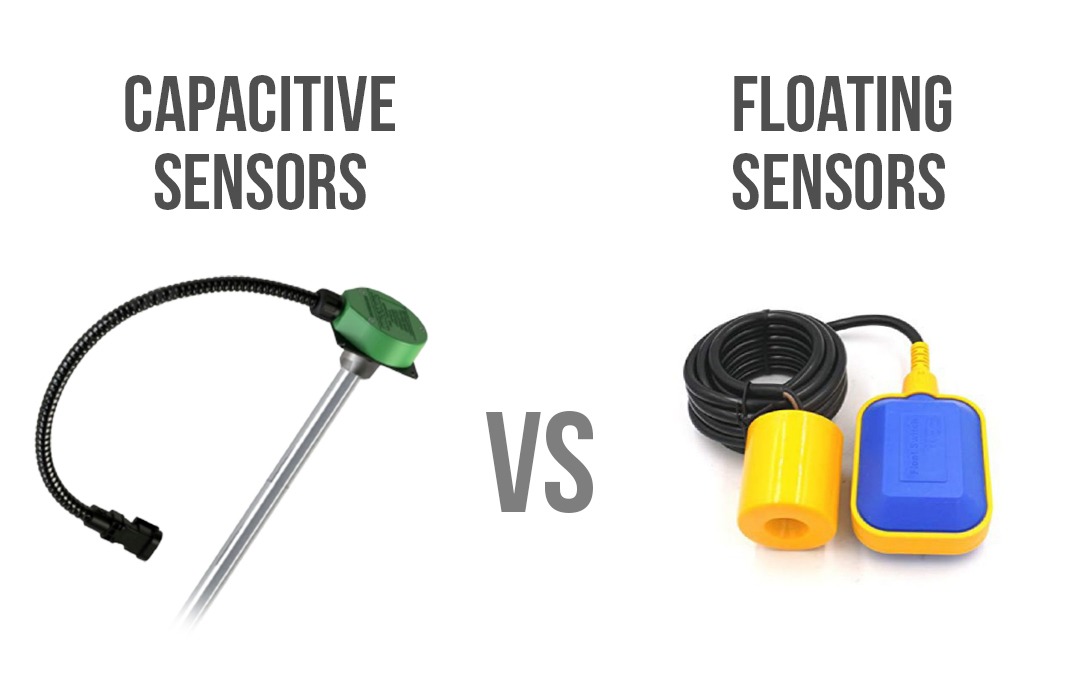
Tracking SolutionWritten By: Suman Kumar Paul
The unexpected increase in global fuel prices has reinvigorated the discussion about fuel economy. Even though the retail consumer has been at the center of the discussion about growing fuel prices and associated ramifications, business fuel consumers, including firms in the logistics and transportation domain, have been most affected. The post discusses the urgent requirement to improve transportation fuel economy and how smart fuel sensors and fuel management systems can be a perfect solution for the industry.
Which Fuel sensor is best for your business fleets?
Factory Fitted Float Level Fuel Sensors
A floating fuel sensor functions in a simple technique; as the name indicates, it employs a float composed of foam that is positioned in the fuel tank and travels up and down in proportion to changes in fuel level. The float is attached to a metal rod that slides against the resistor, transferring data to the vehicle's dashboard fuel gauge.
The intensity of the signal changes when the float travels up or down as per fuel levels, signifying a shift in fuel levels. Float fuel sensors are not very precise and have an error rate of 10-30%. As a result, it is only advised for private vehicles and does not produce extensive fuel data details.
Single Probe Capacitive Fuel Level Sensors
Capacitive fuel sensors can detect fuel leak and helps monitor fuel levels in real-time. Capacitive sensors are widely employed in heavy-duty trucks and mining vehicles that commute and operate frequently. Furthermore, they are features of fleet management software solutions such as a fuel management system or telematics system. It takes the advantage of a concept known as the dielectric effect to provide highly precise data about vehicle fuel burn.
This data is successively transferred to fleet or fuel software solutions, which utilize it to produce statistics connected to the vehicle's fuel consumption. Prior Fuel sensor calibrations are required to evaluate the value at each fuel level on the rod depending on fuel tank dimensions.
Why capacitive fuel level sensors are more advantageous over tech-proven floating fuel sensors?
Solid-State Architecture
With zero moving components, the capacitive sensor is a pure solid-state device. Since there are no floats or arms to jam or wear out, this ensures unmatched accuracy.
Sensor Electronics located outside the fuel tank
Comparing the design of both fuel level sensors the potentiometer of the floating fuel level sensor is mounted inside the fuel tank. This not only reduced the life of the sensor due to fuel contamination and corrosion but also complicates the maintenance process too.
Continuous fuel level monitoring
A capacitive fuel sensor has no mechanical 'steps' in its output, resulting in exceptional precision. The reed switching float sensor registers a level change only when the float triggers unique switches, resulting in an inadequate level measurement.
Capacitive Fuel Sensors Eliminates Fuel Turbulence
The best part of capacitive fuel level sensors is that it neutralizes the turbulence effect of the fuel. Technically the sensor measures accurate fuel levels as there is zero turbulence inside the capacitive sensor probe.
Minimal Ownership Cost
Although a capacitive sensor has a higher upfront purchase cost, it has internal robustness and longevity, giving it an endless mechanical life. This signifies that if a float sensor needs to be replaced due to technical malfunctioning, the capacitive sensor's overall ownership cost is much cheaper than multiple sensor replacements.
Wide Installation Adaptability
Capacitive Sensors can be easily mounted on all fuel tank types. These sensors offer superior positioning flexibility to capture the complete depth of an asymmetrical tank design. In addition, capacitive fuel level sensors can be deployed on a wide range of fuels. Furthermore, the fuel sensing technology offers cost-effective and reliable fuel level monitoring for all your harsh operational and environmental conditions.
Capacitive Fuel Sensor: The Winner
Float fuel sensors hold a presence in basic fuel-level applications and are a common and established technique for quick fuel-level sensing. However, by leveraging the better benefits of cutting-edge capacitive fuel level sensing technology, fuel level measurement is precisely accurate, reliable, stable, corrosion proof, and delivers the best value.
As a result, the capacitive fuel sensor is the clear winner in all technical and technological aspects.
VTPL presents the best-in-class industrial-grade fleet management solution that is tailored to your business’s requirements and focuses on all parameters while delivering fuel management solutions. Contact our fleet specialists and schedule a demo of our fuel management system today. Drop your technical queries at info@vareli.co.in.
TAGS - fuel management system fuel tracking solution Best GPS Fleet Tracking Software Advanced GPS Fleet Tracking Software mining fleet fleet operations fleet maintenance best fleet management system india best fleet management system kolkata fleet management
See Also - Customized Fuel Tracking Technology to Accelerate your Business